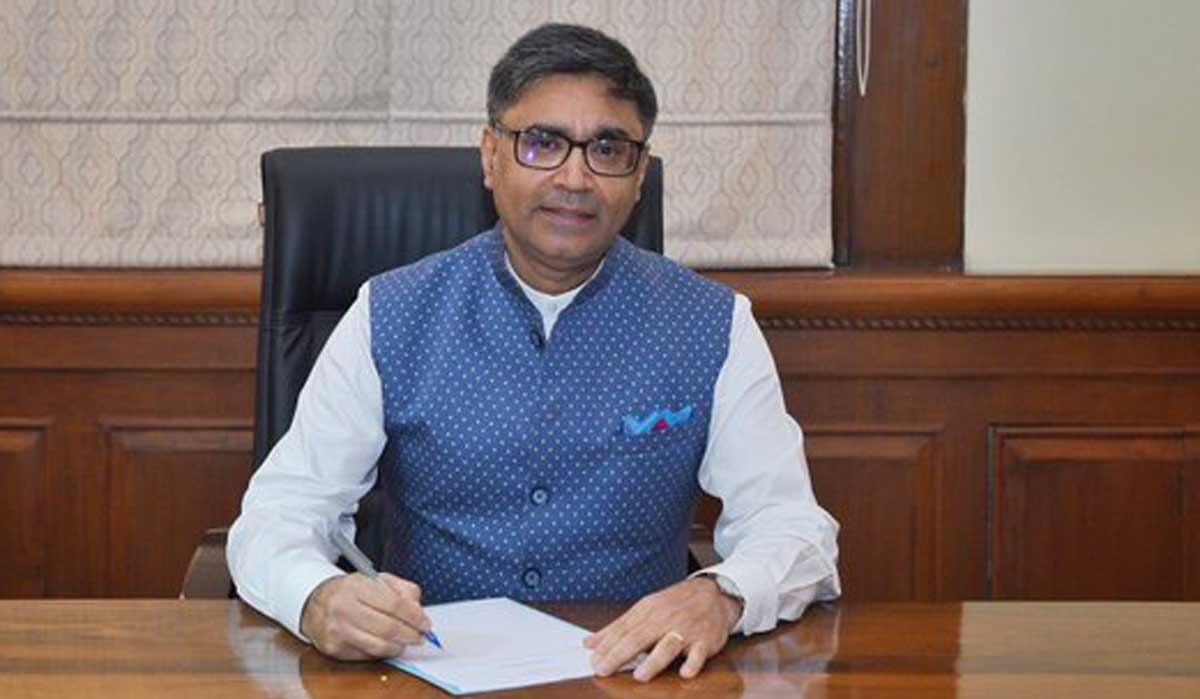An acknowledged China hand, Vikram Misri assumed office from Vinay Kwatra on Monday as India’s new foreign secretary. He brings to the table a rare understanding of field postings and headquarters that will test his skills of diplomacy, strategic affairs and understanding of security to the fullest.
His biggest challenge will be to maintain India’s prime diplomatic plank of 'strategic autonomy' which has helped it maintain equidistance from both the US-led West and Russia.
On July 11, the US ambassador to India Eric Garcetti already shot the first salvo when he said there is no such thing as strategic autonomy in times of conflict. "We will, in crisis moments, need to know each other. I don’t care what title we put to it, but we will need to know that we are trusted friends."
On the face of it, what it means is that the ground for practising 'strategic autonomy' will get constricted. This is a fallout of India’s reluctance to categorically condemn Russia’s invasion of Ukraine which will test US patience. It will also have an impact of India’s new planned trade corridors that link India to Russia via Iran.
Misri’s appointment comes at a time when bilateral ties with China are at low ebb, particularly in the backdrop of brutal border clashes and an ongoing confrontation between soldiers of the Indian Army and the People’s Liberation Army. Several rounds of talks at the military and diplomatic levels have not been able to break the deadlock totally.
At the same time, the growing US-China rivalry from commerce to military has wedged India against China as the US sees India as a vital and major power to contest China across the Himalayas and in the Indian Ocean region. Although this has warmed Indo-US ties leading to the ‘Quad’ and several key military agreements, the relationship is yet to move at full steam, particularly due to India’s cageyness and caution to be drawn into an open conflict with its northern neighbour.
Of course, Misri’s stint as the Indian envoy to Myanmar in 2016 will hold him in good stead in deciding the policy towards its eastern neighbour that is embroiled in a civil war between the military junta and pro-democracy fighters and the ethnic armed organisations that are fighting the junta. Till now, India’s Myanmar policy is somewhat in the grey zone.
From the Indian perspective, Myanmar is a very important geography as it is the pivot on which the Act East Policy (AEP) hinges.
What will also help the new foreign secretary is his experience with the strategic and security portfolios he has held over the years. Before his new assignment, Misri was the Deputy National Security Adviser (Strategic Affairs) of India, a post he held from January 1, 2022 to June 30, 2024. His assignments in New Delhi have included work on the Pakistan desk of the foreign affairs ministry.
An IFS officer from the 1989 batch, Misri has the unique distinction of having served as the joint secretary in the Prime Minister’s Office and as private secretary to three Prime Ministers of India—I.K. Gujral, Dr Manmohan Singh and Narendra Modi. He has also worked with two foreign ministers—Gujral and Pranab Mukherjee.
In his career, Misri has practised his diplomacy in postings across Europe, Africa, Asia and North America. The Srinagar-born Misri completed his graduation from Delhi University’s Hindu College and later pursued an MBA from XLRI, Jamshedpur.



